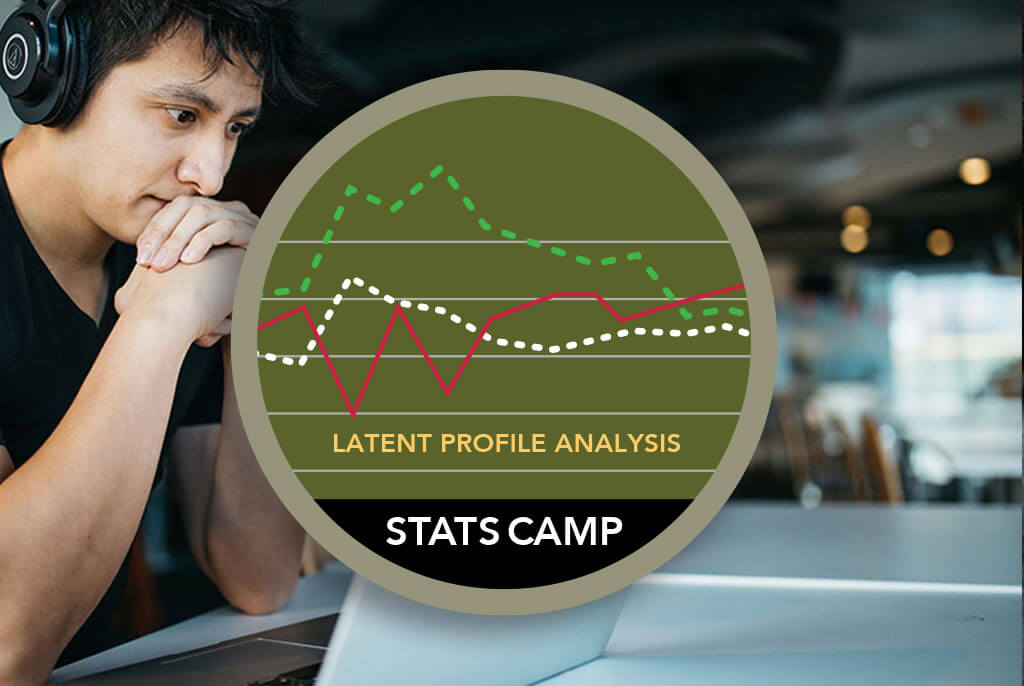LIVE STREAM – 4-day Statistics Short Course
Seminar Overview:
An introduction to “person-centered” data analysis. Topics include latent profile analysis (aka, latent class cluster analysis), and modeling predictors and outcomes of latent profile membership. Hands-on practice with Mplus is provided.
Seminar Topics:
Latent Profile Analysis (LPA) steps including research questions appropriate for latent profile analysis, profile (class) enumeration and assessing profile model results (classification quality, profile homogeneity and separation), predicting profile membership with other variables and profile membership predicting outcomes. Practice analyses will be completed to build comfort with syntax and reading of output. We will also cover how to interpret and present the results to maximize audience understanding.
Seminar Description:
This four-day camp is an intensive short seminar in the fundamentals of latent profile analysis (LPA).
LPA is a type of latent variable model-based finite mixture models that express the overall distribution of one or more continuous variables as a mixture of a finite number of component distributions. In direct applications, one assumes that the overall population heterogeneity with respect to a set of continuous, manifest variables is due to the existence of two or more distinct homogeneous subgroups, or latent profiles, of individuals. These approaches are often termed “person-centered” analyses in contrast to the “variable-centered” analyses of conventional factor and SEM models.
This seminar will introduce participants to the prevailing “best practices” for direct applications of basic latent profile analysis to cross-sectional data, specifically latent profile analysis (LPA) also known as latent class cluster analysis (LCCA), including model assumptions, specification, estimation, evaluation, selection, and interpretation. Models that allow for the inclusion of correlates and predictors of latent profile membership as well as distal outcomes of latent profile membership will be presented. The implementation of these models in the most recent version of the Mplus software will be demonstrated and practiced throughout the seminar.
Instructor: Whitney Moore, Ph.D.
Dr. Whitney Moore is an Assistant Professor of Kinesiology at East Carolina University. Whitney received her Ph.D. in the Psychosocial Aspects of Health and Physical Activity from the University of Kansas. She has been a Stats Camp instructor since 2012 (after experience being a “counselor” for SEM, Longitudinal SEM, and MLM). Whitney has taught graduate courses in research design, introduction to statistics, ANOVA, SEM, and measurement development at two different R1 institutions. Her research is at the intersection of advanced quantitative methods and psychosocial aspects applied to sport, exercise, and physical education contexts. This is particularly illustrated in her work on measurement development; helping to develop or modify 12 measures in the last 10 years. Whitney is particularly interested in planned missing data designs, finite mixture modeling, plus mediation and moderation in SEM.
APA Continuing Education Credits:
This course provides 16 credit hours for continuing education. Stats Camp Foundation is approved by the American Psychological Association to sponsor continuing education for psychologists. Stats Camp Foundation maintains responsibility for this program and its content.
Seminar Includes:
Materials, downloads, recorded course video viewable for up to one year.




